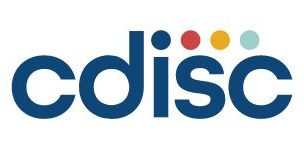Vivli Executive Director Rebecca will present at the Drug Information Association’s (DIA) Future of Evidence Workshop session on Real World Evidence (RWE), Data Sharing and Data Transparency. Dr. Li’s presentation on “Finding New Solutions to Problems and Concerns in Clinical Data Sharing – Outcomes from Datathon” will speak on October 25. The Switzerland based event runs October 24 – October 25, 2019 from 9:00am – 5:30pm. The workshop agenda includes three separate sessions on the important components in maximizing clinical utility, and the role of willingness to share data in this initiative.
Category: News
Johnson & Johnson joins Vivli as a member
“We are delighted to have Johnson & Johnson join Vivli as a member,” said Rebecca Li, Vivli Executive Director. “This partnership will drive science forward by enabling the combination of J&J data with sources available from Vivli’s other member organizations.”
Read more about the partnership in this post by Joanne Waldstreicher, Chief Medical Officer at Johnson & Johnson.
Watch the recording of Vivli’s Annual Meeting
The Vivli Annual Meeting event on Wednesday, September 18, 2019 was recorded.
For those who are unable to attend the meeting in person, you can view the proceedings.
Annual Meeting Agenda
Welcome remarks
Vivli Update for 2019 and Vision for 2020
Working lunch
Invited Speaker: Informed consent and secondary use of data for data sharing – David Peloquin, Ropes & Gray
Panel Discussion: Challenges of sharing small datasets and rare disease data
- Patrick Cullinan, Takeda
- Edith Eby, Pfizer
- Robyn Himick, Amyloidosis Research Consortium
- David Peloquin, Ropes & Gray
- Susan Ward, cTAP
Lightning Rounds–Brief updates from Vivli stakeholders
- Tianjing Li, Johns Hopkins University – Meta-analysis Utilizing IPD
- Quan Chen, ImmPort, NIH – Data reuse partner
- Gaurav Luthria and Qingbo Wang, Harvard University – Vivli Microsoft 2019 Datathon Grand Prize Winners
- Heather Pierce and Anurupa Dev, Association of American Medical Colleges – Credit for data sharing
- Pam Miller, New England Journal of Medicine – NEJM Experience with Data-Sharing Statements
Wrap-up and Next steps
Vivli Executive Director to Share Experience with Synthetic Data
Dr. Rebecca Li will discuss how Vivli used synthetic datasets as part of its data challenge with Microsoft on a webinar entitled An Introduction to Synthetic Clinical Trial Data. The webinar will be on October 4 at 11am-12pm EDT and is hosted by Replica Analytics. Sign up to the webinar today to find more about how synthetic data can be used to share clinical trial date while protecting participant privacy.
Register for Vivli’s Annual Meeting on September 18

“Working Together to Transform Data Sharing”
The Vivli Annual Meeting event will be held at the DoubleTree by Hilton Hotel Bethesda.
The event is free but registration is mandatory, please register as soon as possible as space is limited.
Date: Wednesday, September 18, 2019.
11:30 – 4:00 pm EST.
Location: DoubleTree Hilton – 8120 Wisconsin Avenue. Bethesda, MD 20814
If you are unable to attend in person, a livestream of the meeting is available. Sign up to attend the meeting virtually.
Agenda
Welcome remarks
Vivli Update for 2019 and Vision for 2020
Working lunch
Invited Speaker: Informed consent and secondary use of data for data sharing – David Peloquin, Ropes & Gray
Panel Discussion: Challenges of sharing small datasets and rare disease data
- Patrick Cullinan, Takeda
- Edith Eby, Pfizer
- Robyn Himick, Amyloidosis Research Consortium
- David Peloquin, Ropes & Gray
- Susan Ward, cTAP
Lightning Rounds–Brief updates from Vivli stakeholders
- Tianjing Li, Johns Hopkins University – Meta-analysis Utilizing IPD
- Quan Chen, ImmPort, NIH – Data reuse partner
- Gaurav Luthria and Qingbo Wang, Harvard University – Vivli Microsoft 2019 Datathon Grand Prize Winners
- Heather Pierce and Anurupa Dev, Association of American Medical Colleges – Credit for data sharing
- Pam Miller, New England Journal of Medicine – NEJM Experience with Data-Sharing Statements
Wrap-up and Next steps
Reception to follow.
Space is limited, reserve your seat today by registering.
Joint Vivli and CDISC webinar: Why Data Sharing and Data Standardization Matters

CDISC and Vivli are presenting an exclusive conversation with Vivli Executive Director Dr. Rebecca Li, UCSF professor and Vivli Co-Founder Dr. Ida Sim, and CDISC President and CEO David R. Bobbitt who will discuss how data sharing and data standardization go hand-in-hand in the quest to move scientific discovery forward. View a recording of the webinar.
Topics will include:
- The importance of data sharing and shifting the data sharing landscape
- How to increase data utility: the benefits of data standardization
- Working together
Presenters:
David Bobbitt, President & CEO, CDISC
Dr. Rebecca Li, Co-Founder, Vivli
Dr. Ida Sim, Co-Founder, Vivli; Professor of Medicine, University of California, San Francisco
By bringing together a global community of experts to develop and advance data standards of the highest quality, CDISC creates clarity in clinical research. CDISC enables the accessibility, interoperability, and reusability of data for more meaningful and efficient research that has greater impact on global health.
Rebecca Li to present at the OHRP Exploratory Workshop
Vivli Executive Director Rebecca to will speak at the Office of Human Research Protection (OHRP) 2019 Exploratory Workshop Privacy & Health Research in a Data-Driven World on September 19. The Bethesda, Maryland, event runs from 8.15am-4.15pm EDT and will have a live webcast. The workshop agenda includes three separate sessions related to the theme of privacy and health research in a data-driven world and videos of each session will be available after the event. Dr. Li will speak on The Vivli Experience in Sharing Clinical Trial Data Globally.
Patients Don’t Have the Luxury of Patience
Long-term cancer survivor and patient advocate Jane Perlmutter tells us why data sharing is so important for people with rare diseases.
Q: Why should we share data from clinical trials?
Jane Perlmutter: I spent half my life as a cancer survivor. At first, I thought I wouldn’t survive it–and I’ve had three more cancer diagnoses since. I’m still here. And I’m here because people have contributed their own experience by being in clinical trials.But we need to learn faster. I like to say patients don’t have the luxury of patience. By allowing researchers to get access to data from multiple clinical trials, we can get to better solutions more rapidly and help more patients.
Q: What does data sharing mean for people with rare disease?
JP: When patients are diagnosed with a disease, especially a rare disease, it’s often very traumatic, and they want to find some way to get meaning out of that traumatic experience. One way is to participate in a clinical trial. They hope that their experience helps answer some questions and lead to some solutions so that their children or future generations won’t have to suffer the same things as they did. Sharing data from these trials increases the chances that their experience will be meaningful. There are fewer trials for very rare diseases, and that’s one reason why it’s even more important that we share those data and make the most of them.
Q: Aren’t you concerned about privacy with data sharing?
JP: To make people feel secure in sharing their data, we need to ensure there is some privacy so that their personal information doesn’t get out. When it comes to rare diseases, there are fewer of those patients, so protecting their data becomes even more of a challenge. The good news is, there are many ways to protect patients’ identities. And, while privacy is important, what’s most important for the patients–and they will tell you this–is that many researchers can use the data. A recent study showed that 93% of patients who are in clinical trials are happy to have their data shared with more and more researchers.
Q: How can platforms like Vivli help?
P: It can be difficult for a researcher that runs a clinical trial to figure out how to share data, but Vivli makes it easy. To learn as rapidly as possible, and get to better treatments and cures faster, researchers need as much data as they can get their hands on. That’s what Vivli is all about.
Vivli board member to speak at DIA Japan
Vivli board member Mark Barnes, JD, LLM will speak on a panel entitled “Sharing Individual Participant Data (IPD) from Clinical Trials and Personal Information Protection” on November 11 at the 16th DIA Japan Annual Meeting 2019 in Tokyo. Find out more.
Take part in the Vivli User Survey today
Vivli is always looking to improve its data sharing platform and the support it provides to its users.
We are asking all platform users to help us by taking our brief survey today. We will use the results of the survey to continue to develop our platform and user support.
We will use the results of the survey to continue to develop our platform and user support.
Thank you in advance for your feedback.
.

